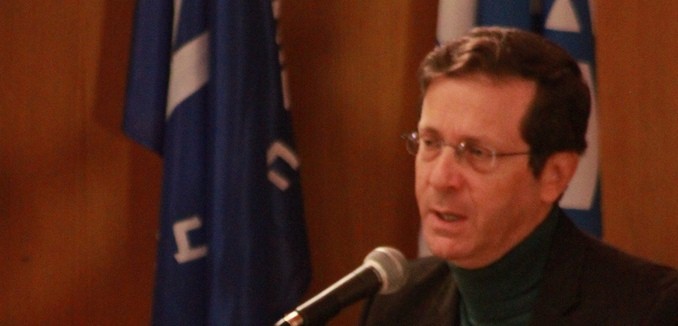In an op-ed published Saturday in The New York Times, Labor Party leader Isaac Herzog wrote that “on the Iranian nuclear threat, Israelis are one.”
More generally Herzog argued:
But a nuclear Iran would endanger not only Israel. If it goes nuclear, the Middle East will go nuclear, putting world peace itself in jeopardy. This is why the Iranian nuclear challenge must not be seen as Mr. Netanyahu’s obsession, or anyone’s partisan issue, but as a central issue for the whole international community to address.
Indeed, my countrymen are joined by many Arabs who are likewise concerned about the centrifuges spinning at Natanz and Fordow. Israelis and Arabs live in the Middle East, and know the Middle East. Facing a dangerous Iran as well as the violence of Islamists at their most extreme, we are willing to work together to stabilize our region and offer it a better future. When reasonable Israelis, Saudis, Egyptians, Jordanians and others sound the same alarm bells about Iran, everyone should pause and beware of accepting an irreversible deal we might live to regret.
I do support a diplomatic endeavor that effectively blocks Iran’s path to the bomb. But that effort also must keep all options on the table, deny Iran a pass on its destabilizing regional policies and support of terror, and be accompanied by an international demand that Iran abandon its threat to the existence of Israel.
Herzog is not alone. Prominent leaders and analysts on the Israeli Left are concerned that the Obama administration will agree to a bad deal with Iran. While there is debate in Israel about whether Prime Minister Benjamin Netanyahu’s speech to Congress is the proper tactic, there is a consensus across the Israeli political spectrum that the P5+1 may be headed towards an agreement with Iran that will be detrimental to Israeli security.
Recently, in an interview with CNN, Herzog said, “I’m worried about a bad deal and about caving into all sort of Iranian pressure as well.”
Amos Yadlin, former head of IDF Military Intelligence and the Labor Party’s candidate for Defense Minister, criticized the Obama administration’s goal of leaving Iran with a break-out time of one year, stating that the break-out time “must be measured in a number of years” and that Israel “will view a deal that leaves Iran up to a year from a nuclear bomb as a bad deal.” (In contrast, during his interview with Reuters yesterday, President Barack Obama said that “as long as we’ve got that one-year breakout capacity, that ensures us that we can take military action to stop them if they were stop it [sic].”) Additionally, Yadlin has warned that the U.S. government’s mentality that an agreement is preferable to the alternatives is “liable to justify signing an extremely bad agreement.” Yadlin has previously cautioned the West not to be fooled by the Iranians, who have a cunning strategy of agreeing to only limited, reversible compromises.
Regarding preliminary reports about a potential deal with Iran, Yair Lapid, leader of the centrist party Yesh Atid, has stated in an interview, “We think this is not harsh enough, or strong enough towards the Iranians.” Former Labor Prime Minister Ehud Barak has expressed disappointment that the Obama administration has “changed its objective from no nuclear military Iran to no nuclear military Iran during the term of its administration.” Leading Haaretz columnist and author Ari Shavit observed that “Obama’s desire to appease Tehran… could destroy his own vision of nuclear disarmament.”
Moreover, a number of these present and former officials and analysts have expressed concern about American rapprochement with Iran. In an article published on Tuesday, Yadlin insisted that a shift away from the traditional alliances with Israel and moderate Arab states, and towards Iran, would be “a big mistake. Iran is a source of instability, terror, regime change, and Islamic revolution all over the Middle East.” Furthermore, Barak, who supports a robust campaign against ISIS, has also asserted that “allowing Assad and the ayatollahs in Iran…to be the real winners- that doesn’t make sense.”
[Photo: The Israel Project / Flickr ]




